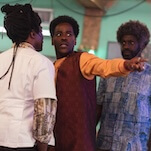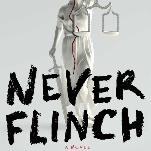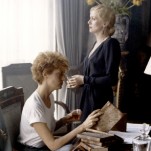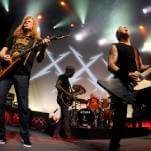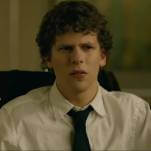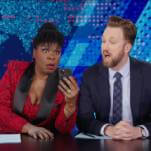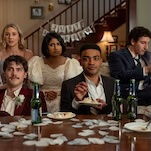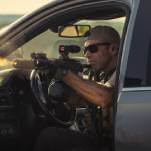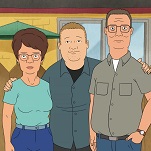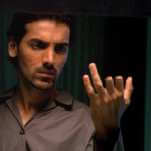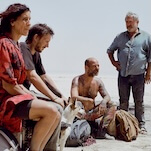For a young American filmmaker, there aren’t many career boosts greater than the one provided by a buzzed-about Sundance premiere. I sometimes wonder if any of these same filmmakers don’t end up feeling a nagging anxiety after the fact, a pressure to live up to the expectations their big breakthrough creates. With what does one chase a Sundance sensation? And how does one spend all that sudden career capital? These questions kept popping into my head yesterday, as I watched a string of new films from returning alumni of the festival—including one that deals expressly with the burden of success.
Ponsoldt has become something of a Sundance perennial, having now premiered all four of his features in Park City. This is not a case of pure favoritism, of someone getting invited back because they’re already part of the club. Ponsoldt belongs to that rare group of young filmmakers that seem to get better with every picture; just as 2012’s The Spectacular Now greatly improved on Smashed, the film he made before it, The End Of The Tour finds the director growing increasingly confident in his handling of intimate, dialogue-driven material. It helps that said material—and said dialogue, though some of that is surely pulled from the tapes—is so strong. The screenplay, adapted from Lipsky’s non-fiction book by Pulitzer Prize winner Donald Margulies, transforms what might seem on the surface like a mundane meeting of the minds into a sharp two-hander. Like some of the best talkfests, it approximates the vagaries of actual conversation—the starts and stops that occur when two strangers are getting to know each other, one sentence at a time.
The casting, too, is crucial. By now, Eisenberg has proven himself more than adept at capturing a full spectrum of neurotics, from the adorkable nice guys to the petty geek tyrants. There’s a little bit of both in his portrayal of Lipsky, a man torn between competing impulses—his genuine, growing affection for Wallace versus his mercenary journalistic instincts, his admiration of the author’s gifts versus his obvious jealousy of them. He also nails the way journalists converse, how they ask questions and prompt answers and shape interviews in progress.
The revelation here is clearly Segel, who disappears completely into the role of a depressed, reluctant genius. I’m not familiar enough with what Wallace looked or sounded like to know if this is an uncanny impersonation, nor can I say if the actor captures the soul of the artist he’s playing. (I’ve never read any DFW—I know, I know, I’m getting on it.) What I can say is that Segel definitely understands the secret insecurity that plagues so many writers, even the ones who achieved the level of success DFW did. We really believe we’re watching a man who has wrestled with personal demons, and who’s still trying to reconcile his widespread popularity with his discontent.
I don’t know much about David Foster Wallace; about the best compliment I can pay The End Of The Tour is that it made me briefly consider blowing off some of my Sundance schedule to finally, immediately dig into his work. But I know plenty about self-doubt, professional envy, and the strange business of forging a connection. When Wallace confesses, in a beautifully written (or transcribed?) scene, that he feels more and more like a fraud with each new accomplishment, there’s not a writer watching who won’t feel a chill of some recognition. It’s a film for wordsmiths, but also for anyone who’s ever talked away a few days, saying too much too soon but not regretting it.
Like Ponsoldt, director Craig Zobel has returned to Sundance with a talky drama featuring a tiny cast. Three years ago, and within hours of the premiere of Smashed, Zobel caused a minor stir in Park City with his own second feature, the queasy stranger-than-fiction curio Compliance. To say the film was divisive is an understatement; one woman at the premiere reportedly stood up and shouted, “Sundance, you should be ashamed of yourself” after the curtain came down. So it’s strange to see Zobel, hot off a lighting-rod provocation, make something as modest and uncontroversial as Z For Zachariah (Grade: B-). In fact, this post-apocalyptic melodrama, about a love triangle between (maybe) the last three people alive on Earth, actually feels like a ruralized, slightly watered-down remake of a much older movie, the 1959 Harry Belafonte vehicle The World, The Flesh And The Devil. (In reality, it’s a loose adaptation of a 1974 Robert C. O’Brien novel.)
Set in the aftermath of some unidentified global nuclear catastrophe, the film takes place in an idyllic, verdant valley untouched by radiation—shades of the Garden Of Eden—where the lone remaining resident (Margot Robbie) tends to the family farm. She’s soon joined by a nomadic scientist (Chiwetel Ejiofor), who was underground when the shit hit the fan and has been wandering for days in search of life. Slowly, the two tiptoe into a tentative romance, until their domestic bliss is disrupted by the appearance of another man, a Southern stud played by Chris Pine.
A sci-fi soap, Z For Zachariah neither insults the intelligence nor tugs too tightly on the heartstrings. It’s just a modest, unremarkable love story, buoyed by three fine performances. Try as I might, though, I couldn’t shake its heavy and unflattering similarity to the Belafonte film. In its dated and heavy-handed way, The World, The Flesh And The Devil remains a more thoughtful and provocative movie—one in which a black man and white woman struggle to entertain the possibility of a life together, for fear of violating the codes of a society that no longer exists. Made in a supposedly more enlightened era, Z For Zachariah deals more subtly with race—it’s only acknowledged once, in what plays like a laugh line for Ejiofor—but it also largely sacrifices any social subtext, beyond a half-baked science-versus-faith division. Zobel, meanwhile, directs the whole thing like a Nicholas Sparks adaptation, piling on the dewy bucolic imagery and tasteful, romantic sex scenes. It’s a weird change of pace for a guy whose last film achieved such an uncomfortable power—though one has to admire, on some level, his willingness to follow his muse wherever it takes him, even into old-school sap.
Certainly, Z For Zachariah is a more interesting post-breakthrough effort than Ten Thousand Saints (Grade: C+), whose directing duo, Shari Springer Berman and Robert Pulcini, have made some odd career choices since their American Splendor won Sundance in 2003. Their latest is a coming-of-age story set against the flavorful backdrop of early-’80s New York, specifically the straight-edge scene, and concerned with the ways families are broken (through divorce and death) and redefined (through adoption and friendship). Based on a novel by Eleanor Henderson, Ten Thousand Saints suffers from a fatal case of First-Person Protagonist Syndrome: Its teenage hero, played by Hugo’s Asa Butterfield, spends most of the movie watching with moist eyes, as melodrama—the demise of a friend, the pregnancy of another friend—unfolds around him. This kind of narrator/audience surrogate works better on the page; on the screen, it plays like there’s a black hole of charisma at story’s center. Amiable but imminently forgettable, the film does have one big thing going for it: Ethan Hawke, even better here than he was in Boyhood, as the main character’s pot-dealing, deadbeat dad. Can we give him an Oscar for this supporting performance?





















